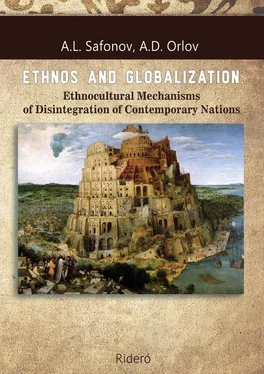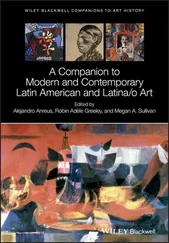In any case, the ideological, prescriptive component of theories of globalization should be singled out during the analysis as a model of a society or a type of social behaviour, designed for a certain social group (target audience). One should consider the theory of a certain social phenomenon not only as a model of this phenomenon, but also as a symbolical resource, forming social and individual consciousness.
Thus, existing concepts of globalization, while reflecting the point of view and interests of certain social agents, should be seen not only as theories, but also as instruments to promote these agents’ specific interests. Therefore, constructivist and instrumentalist approaches to sociogenesis, which take subjective moments of sociohistorical development into consideration, are especially important for the theory of globalization.
Are there any universally accepted postulates of globalistics?
Undoubtedly, the fact of the establishment of the global market as a global environment of economic and, therefore, social interaction that is levelling out the spatial disconnection of local economies and the interaction of local social systems, is universally recognized.
Most researchers agree that the objective basis of globalization is scientific and technological progress and the increase in productive forces, used by a range of economically and politically dominant countries (“the golden billion”) and their elites for their own economic and political ends, including the establishment of a world order that generally benefits them.
A certain consensus exists on the necessity of preserving the cultural and civilizational diversity of the world, which objectively clashes with the Western project of globalization.
Most researchers believe that a unipolar model of globalization based on liberal fundamentalism allows no future for the existing local civilizations and corresponding cultural and historical communities, or for the West itself. At the same time, the modern scientific community cannot offer anything except a vague slogan of “dialogue of civilizations’.
The idea of the dialogue of civilizations, as an extremely abstract position devoid of clearly formulated ideas and of any connection to social agents, is formulated in the foreword to the Russian translation of Braudel’s Grammar of Civilizations : 83 83 Braudel, F. Grammaire des Civilisations. – M.: Ves’ mir, 2008. – 552 p.
“Globalization develops at the same time as the multipolar world appears. Civilizations have to learn… to agree to the existence of other civilizations, admit that they will never achieve dominance over others, be ready to see equal partners in others.”
As a result, theoretical consensus on globalistics is limited by the fact-based side of the globalizational processes.
As for the theory of globalization as such, the process is ongoing in terms of theory that reflects objectively the growing antagonism of social agents of global development, principally global and local elites. As a result, the theory of globalization and contiguous scientific areas and disciplines form the stage for a battle between the interests of global and local elites and may therefore be seen as the reflection of globalization processes in the сollective consciousness.
It is therefore evident that the theory of globalization needs to go beyond separate disciplines and local theoretical constructions to consider the interpretation of globalization processes on a sociophilosophical level.
Most globalization models have been based on a multi-stage approach, typically including economic determinism. Within this approach, globalization is seen as an objectively predetermined, largely economic process of the spread and universalization of the Western economic model in its neoliberal version. This has created an impression of the establishment of a global “suprasociety’ (Zinoviev), the announcement of the “end of history’ 84 84 Fukuyama, Francis. The End of History and the Last Man. M.: Yermak, ACT, 2005. – 592 p.
and the appearance of the global empire with a Euro-Atlantic civilizational nucleus and several rings of dependable and agentless periphery.
The scope of the research may serve as a basis for the classification of theoretical approaches.
The approach to globalization as an objective historical tendency of the extension of intergovernmental and intercivilizational interactions and contacts was developed in the works of Beck, 85 85 Beck, Ulrich. 60. Risikogesellschaft. Auf dem Weg in eine andere Moderne. M.: Progress-Traditsiya, 2001. – 384 p.
Berger, 86 86 Berger, Peter, Luckmann, Thomas. The Social Construction of Reality // Translated by E. Rutkevich. M.: Nauka, 1995. – 342 p.
Huntington, 87 87 Huntington, Samuel. The Clash of Civilizations and the Remaking of World Order // Translated by P. Velimeyev. M.: AST, AST Moskva, 2006. – 571 p.
Goldblatt, 88 88 Granin, Y. D. Ethnoses, Nation State and Formation of the Russian Nation. Experience of Philosophical and Methodological Research. M.: IF RAN, 2007. – 167 p.
Castells, 89 89 Castells, Manuel. The Rise of the Network Society. M., 1999. – p. 492—505.
McLuhan, 90 90 McLuhan, M. The Gutenberg Galaxy: The Making of Typographic Man / Mаршалл Mаклюэн. M.: Akademich. Proyekt: Fond “Mir”, 2005. – 496 p.
Soros, 91 91 Soros, G. On Globalization. M.: Praksis, 2004. – 276 p.
Stiglitz, 92 92 Stiglitz, J. World in the last decade of the twentieth century // Transnational Processes: Twenty-First Century. M., 2004. – p. 19—23.
Bratimov, 93 93 Bratimov, O. V. Reality of Globalization: Games and Rules of the New Era / O. V. Bratimov, Y. M. Gorsky, M. G. Delyagin, A. A. Kovalenko. M.: INFRA-M, 2000. – 344 p.
Utkin, 94 94 Utkin, А. I. Globalization: Process and Interpretation. M.: Logos, 2001. – 254 p.
Chumakov, 95 95 Chumakov, A. N. Globalization. Limits of Whole World. M.: Prospekt, 2005. – 432 p.
, 96 96 Chumakov, A. N. Metaphysics of Globalization. Cultural-Civilizational Context. M.: Kanon+, ROOI “Reabilitatsiya”, 2006. – 516 p.
and others.
Geoeconomic and geopolitical aspects of globalization were studied in the works by Buzgalin and Kolganov, 97 97 Buzgalin, A. V., Kolganov, A. I. Global Capital. M.: Editorial URSS, 2004. – 512 p.
Delyagin, 98 98 Delyagin, M. G. Global Crisis. General Theory of Globalization. Course of Lectures. M.: Ifra-M, 2003. – 768 p.
, 99 99 Delyagin, M. G. Globalization. Global crisis and “closing technologies” // Transnational Processes: XXI Century. M.: Sovremennaya Ekonomika i pravo, 2004. – p. 24—51.
Inozemtsev, 100 100 Inozemtsev, V. L. Democracy: forced and desired. Successes and failures of democratization on the brink of a thousand years // Issues of Philosophy. 2006. №9 – p. 34—46.
Subetto, 101 101 Subetto, A. I. Capitalocracy and Global Imperialism. St. Petersburg: Asterion, 2009. – 572 p.
Utkin 102 102 Utkin, А. I. New Global Order. M.: Algoritm, Eksmo, 2006. – 640 p.
and others.
The problem of the influence of globalization on the nation state and state institutions was studied in the works by Beck, 103 103 Beck, Ulrich. Power in the Global Age: A New Global Political Economy. M.: Progress-Traditsiya, 2007. – 464 p.
Bauman, 104 104 Bauman, Z. Globalization: The Human Consequences. M.: Ves Mir Publishing House, 2004. – 188 p.
Stryker, 105 105 Stryker, R. Globalization and the Welfare State. M., 2004. C. N. – p. 83—92.
Drucker, 106 106 Drucker, P. Post-Capitalist Society. M., 1999. – p. 67—100.
Butenko, 107 107 Butenko, A. P. Globalization: essence and contemporary problems / А. П. Butenko // Sotsialno-Gumanitarnye Znaniya. 2002. №3 – p. 3—19.
Rieger and Leibfried 108 108 Rieger, E., Leibfried, S. Limits to Globalization: Welfare States and the World Economy. M., 2004. 4. II. – p. 94—101.
Podzigun, 109 109 Podzigun, I. M. Globalization as reality and problem / Philosophy. 2003. №1 – p. 5—16.
Kara-Murza, 110 110 Kara-Murza, S. G. Globalization and crisis of enlightenment // Transnational Processes XXI Century. M., 2004. – p. 291—293.
Karmadanov, 111 111 Karmadonov, O.A. Globalization and symbolic power // Philosophy. 2005. №5. – p. 49—56.
Kagarlitsky, 112 112 Kagarlitsky, B. Y. Marxism. M.: AST, 2005. – 462 p.
Pantin, 113 113 Pantin, V. I., Lapkin, V. V. Philosophy of Historical Forecast-Making. Dubna: Feniks+, 2006. – 448 p.
Panarin 114 114 Panarin, A. S. Seduction by Globalization. M., 2002. – 440 p.
, E. Pozdnyakov, 115 115 Pozdnyakov, E.A. Nation, state, national interests // Voprosy Ekonomiki, 1994. №2 – p.64—74.
Spiridonov and others.
Читать дальше












